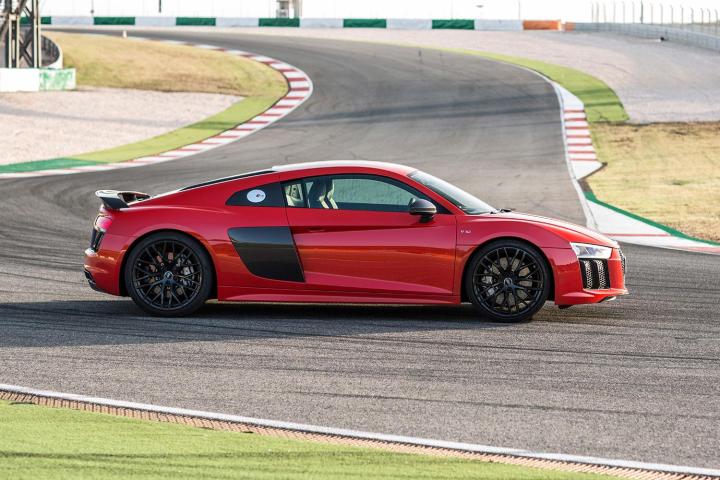
By the end of the year, 15 of the company’s Australian dealerships will create a standalone section for Audi Sport models in their showrooms. The spaces will be staffed by trained salesmen and saleswomen who will sell Audi Sport models exclusively, and each will have its own merchandise counter with Audi Sport-branded clothing, accessories, model cars, and brochures.
Only RS-badged models and the mid-engined R8 (pictured) will be lumped in the Audi Sport sub-brand, though no mention was made of the TT. Lesser S and S-Line models will remain part of Audi’s regular lineup. On paper, the strategy is similar to what Mercedes-Benz has done with its newly-formed Mercedes-AMG sub-brand.
The name Audi Sport was chosen because it allows the company to capitalize on its illustrious racing heritage. Auto Union — one of the companies that spawned Audi — built some of the most technologically advanced Grand Prix cars from 1934 to 1939. Much later, Audi dominated the FIA’s short-lived Group B category with the iconic Sport quattro and, more recently, the company has won the grueling 24 Hours of Le Mans 13 times in the past 15 years. Audi can be justifiably proud of its long list of victories.
Australia wasn’t picked at random. It’s not Audi’s biggest market, but it is a country with a historically large appetite for sport-focused models. Australian website CarAdvice reports that sales of Mercedes-AMG models, Volkswagen’s GTI, and RenaultSport-badged cars are much higher per capita Down Under than they are in Europe or in North America (though, obviously, the latter market doesn’t apply to RenaultSport).
Audi has not revealed how long the pilot program will last, or whether it will also be implemented in other markets. If customer feedback is positive, we can expect to see the Audi Sport sub-brand show up in every market around the globe in the not-too-distant future.
Editors' Recommendations
- Technics’ new earbuds focus on call quality and wireless hi-res audio
- Bose answers call for safety-minded buds with $200 new Sport Open Earbuds
- Privacy-focused Brave browser tests end-to-end encrypted video calling
- Audi balances carsharing, EVs, and sports cars as it prepares for the 2020s
- Everything that’s new and updated from Audi in 2020




